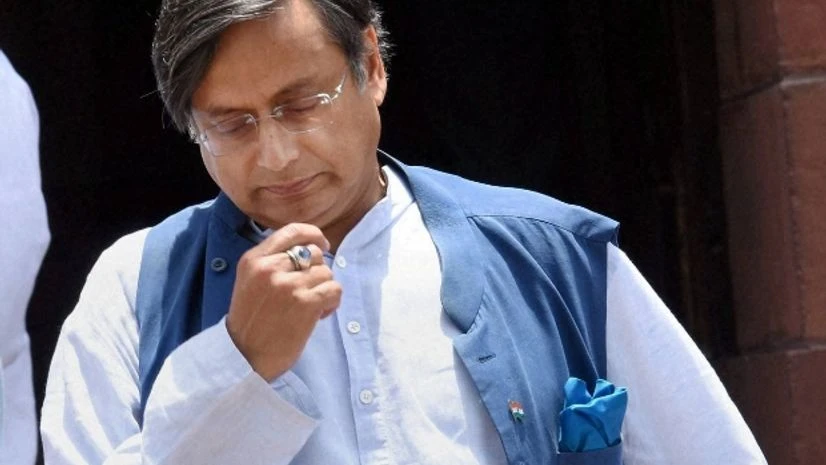No sum of reparations by the British, who reduced India to one of the poorest countries in the world, can compensate for the "horrendous" crimes the Raj committed against the Indian people, writer and politician Shashi Tharoor has said.
Tharoor, who makes a convincing case against the imperial Empire in his new book "An era of Darkness: The British empire in India", said the European country became prosperous primarily by impoverishing India.
"The rise of Britain for 200 years was financed by its depredations in India. And certainly, we were a principle cash cow for Britain throughout the nineteenth century. We paid for our own oppression," Tharoor said at the launch of his book at Taj Mahal hotel here, last week.
"There is and has been a sort of deliberate historical amnesia in Britain about the Raj and about the iniquities of the colonial era. There has been no attempt whatsoever to teach British school children the realities of colonialism.
After all, the beauties of London were built by resources extracted from the colonies," he said.
The 333-page book published by Aleph Book company is an outcome of the politician's speech at Oxford last year, in which he demanded reparation for Britain's colonial crimes.
More From This Section
The book critically examines the 200-year long British legacy in India and provides clinching evidence and incisive arguments against its supposed boons.
Tharoor demolishes the myth of "enlightened despotism" and debunks the "preposterous" vindications given by "Raj apologists" and Anglophiles in favour of the alleged benefits of the rule in India, a country, he writes, was "no primitive or barren land but a glittering jewel of the Medieval world".
"At the beginning of the 18th century, India's share of the world economy was 23%, as large as all of Europe put together. By the time the British departed India, it had dropped to just 3%. The reason was simple: India was governed for the benefit of Britain. Britain's rise for 200 years was financed by its depredations in India," he writes.
The 60-year-old author asserts that India was "deliberately" deindustrialised and drained of its resources, and left with landlessness and poverty.
"While comparisons of human deaths are always invidious, the 35 million who died of famine and epidemics during the Raj does remind one of 25 million who died in Stalin's collectivisation drive and political purges, the 45 million who died during Mao's cultural revolution, and the 55 million who died during World War II," he states.
He emphasises that Britain's Industrial Revolution flourished at the expense of crumbling Indian manufacturing industries, "abetted by tariffs and regulatory measures that stacked the decks in favour of the British".
"It is preposterous to suggest that India's inability to industrialise while the Western world did so was an Indian failure...If India's GDP went down because it 'missed the bus' of industrialisation, it was because the British threw Indians under the wheels," he writes.
Mounting a scathing attack on "benefits" like railways, the English language and the rule of law, Tharoor argues that they were never actually introduced for the benefit of the Indians but to serve Britain's colonial interests.
He said that it was getting late for Britain to atone for its crimes, and asserted that the UK Prime Minister emulates the example of his Canadian counterpart Justin Trudeau who apologised on behalf of his country for denying permission for the Indian immigrants on the Komagata Maru to land in Vancouver.
"I, for one, dearly hope that a British prime minister will find the heart, and the spirit, to get on his or her knees at Jallianwala Bagh in 2019 and beg forgiveness from Indians in the name of his or her people for the unforgivable massacre that was perpetrated at that site a century earlier," he remarks.
Tharoor also demands the return of some of the treasure troves looted from India in the course of colonialism.
"The money exacted in taxes and exploitation has already been spent, and cannot realistically be reclaimed. But individual pieces of statuary sitting in British museums could be, if for nothing else than their symbolic value.
"After all if looted Nazi-era art can be (and now is being) returned for their rightful owners in various Western countries, why is the principle any different for looted colonial treasures?" he asks.
Written in a perspicacious style, "An era of Darkness" is an eye-opening volume that goes a long way in correcting many misconceptions about the British Empire in India.

)
